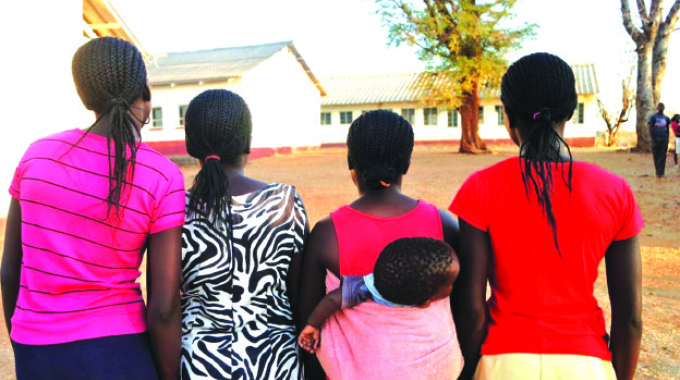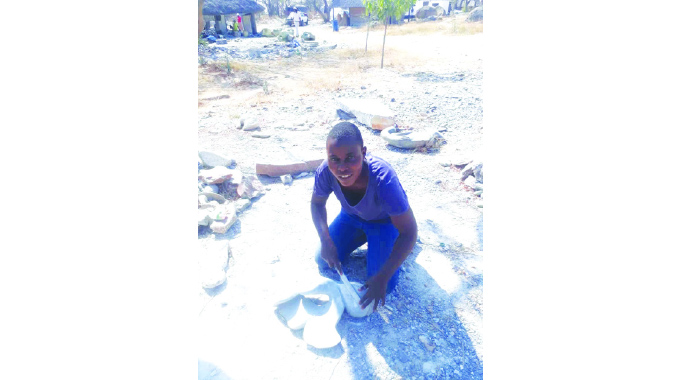Gender-based violence must stop

Mirriam Madiye
Features Writer
Women and girls are an important group in the society.
Their roles in the society are not only pinned on the family, but stretch to other areas of development.
The emergence of lobby groups for women’s rights has also ensured that women venture into social, political as well as economic decision making positions.
Globally, March 8 is set aside as International Women’s Day.
Throughout the month of March, Zimbabwe celebrated women achievers and at the same time also brought out the challenges many women face.
The theme for this year’s IWD was “Women in leadership: Achieving an equal future in a Covid-19 world”.
This year’s Women’s Month came in the midst of the Covid-19 pandemic which has turned the world upside down within a space of one and a half years.
Lockdowns that were put in place globally to control the spread of the virus also brought huge challenges for some women.
During Covid-19 lockdowns, cases of sexual and gender based violence (SGBV), rape cases and child marriages have been on an increase in Zimbabwe.
According to statistics, Mashonaland Central province is one of the provinces with high records of child marriages and gender-based violence (GBV) cases.
It is against this background that Women Action Group (WAG) wrapped up this year’s Women’s Month by holding belated celebrations in Bindura, Mashonaland central province to sensitise and educate the communities about the ills of GBV, child marriages and promotion of sexual reproductive health and rights.
Speaking at the commemorations, provincial nursing officer Anna Chinyemba who was the guest of honour highlighted that Covid-19 affected the lives of girls and women.
“During the first and second lockdown phase, there was an increase in cases of violence against women and girls, child marriages and teenage pregnancies,” she said.
She added: “Reports indicate over 1 000 girls getting into child marriages and almost 5 000 cases of teenage pregnancies in a space of three months.
“These alarming statistics present clear evidence of the need for all to take action and end violence against women and girls.”
She highlighted the need for the society to correct gender imbalances through implementation of different policies.
‘’We all need to continue to challenge gender inequalities, patriarchy and violation of rights that continue to exist among us and the communities have a role to play to ensure we protect the women and girls.
One way of doing this is to create an enabling policy environment that advances and protects women and girls,’’ she said.
She urged the Government to re-align the laws and policies to the Constitution and also ensure existing policies and laws are implemented on management of SGBV and inequalities between girls and boys in schools as a result of child marriages and teen pregnancies.
The director of WAG, Mrs Edina Masiiwa highlighted the need for women and girls to realise their importance and value in the society.
“As women, we should learn to empower ourselves and also not fear to take any leadership position be it in church, communities, politics, ministries or wherever leaders are needed.
“Let us grab the leadership positions as we have the same leadership qualities as men.
“We can only change the world’s leadership if we only take the leadership positions, and the men should help us to take them,” said Mrs Masiiwa
She called on women who have occupied various leadership positions in politics and socio-economic places to mentor and groom others.
She also urged communities to report rape and GBV cases involving women and girls.
“Most women and girls are being raped and most of these cases are not being reported. People should immediately report these cases so that the victims can get assistance because they have the rights to terminate the pregnancy under the Termination of Pregnancy (TOP) Act.
Under sexual reproductive health and rights, women should go to clinics and hospitals for their ante-natal, childbirth and post-natal care and other issues pertaining their sexual health and well-being.’’
Mrs Masiiwa added that there was need to transform the society so that there is gender equality.
Women who attended the commemorations thanked the organisation as they had been enlightened on various issues concerning them and girls.
WAG also held road shows around Bindura town to educate the people about eliminating all of forms of violence against women and girls, the importance of disclosing sexual abuse early to avoid unplanned pregnancies, sexually transmitted infections (STIs) and HIV and raising awareness on the Termination of Pregnancies Act to all communities.
WAG together with their partners are working towards addressing the causes of unsafe abortions and limited access to sexual reproductive health and rights in Bindura and two other districts.
The project is looking at advocating for law reform on abortion and disseminating knowledge on the Termination of Pregnancies Act and sexual gender based violence.









Comments